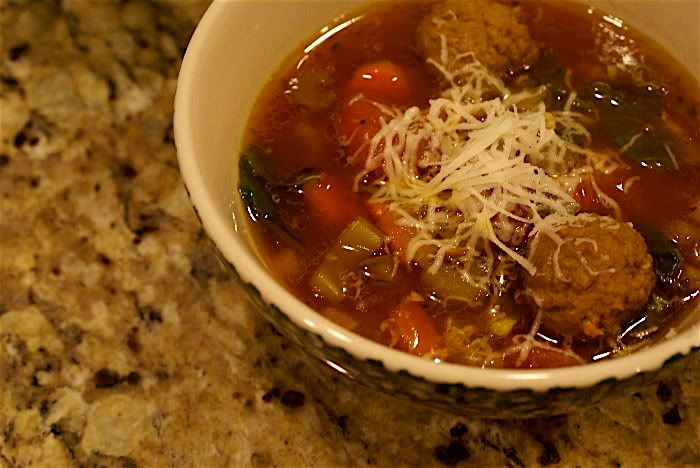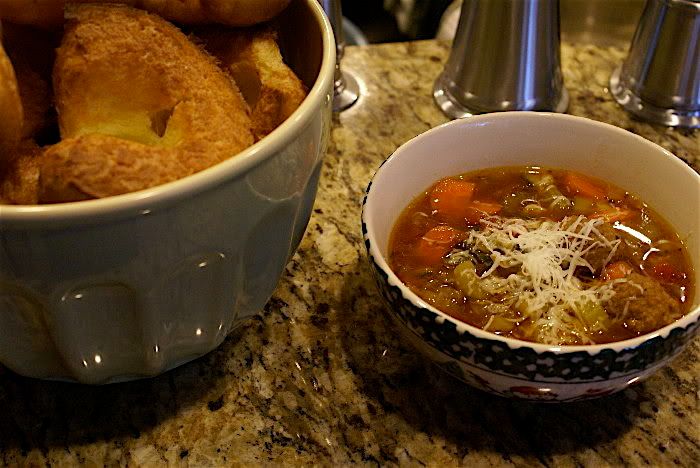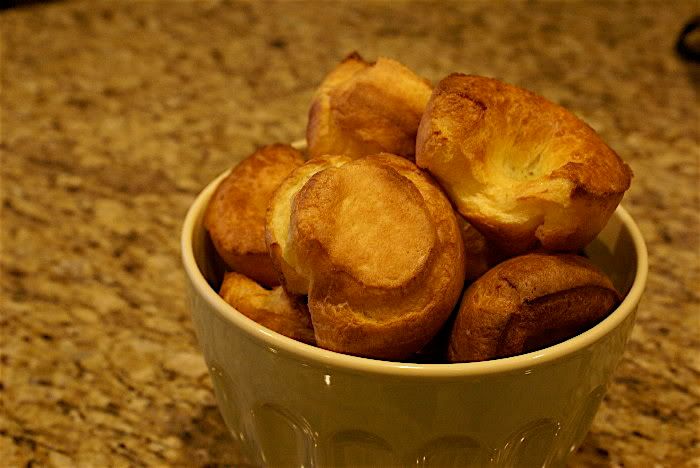
So if anyone knows anything about me I love soup.
According to FoodTimeline.org: Food historians tell us the history of soup is probably as old as the history of cooking. The act of combining various ingredients in a large pot to create a nutritious, filling, easily digested, simple to make/serve food was inevitable. "Our modern word "soup" derives from the Old French word sope and soupe. The French word was used in England in the in the form of sop at the end of the Middle Ages and, fortunately, has remained in the English language in its original form and with much its original sense. We say "fortunately" because it is clear that nowadays a "sop" is not a "soup." The distinction is important. When cooks in the Middle Ages spoke of "soup," what they and the people for whom they were cooking really understood was a dish comprising primarily a piece of bread or toast soaked in a liquid or over which a liquid had been poured. The bread or toast was an important, even vital, part of this dish. It was a means by which a diner could counsume the liquid efficiently by sopping it up. The bread or toast was, in effect, an alternative to using a spoon...Soups were important in the medieval diet, but the dish that the cook prepared was often a sop that consisted of both nutritious liquid and the means to eat it. The meal at the end of a normal day was always the lighter of the two meals of the day, and the sop appears to have had an important place in it. In fact it was precisely because of the normal inclusion of a sop in this end-of-the-day meal that it became called "souper" or "supper."

The general concensus among the food people is that Italian wedding soup (originally known as Minestra Maritata or Pignato Grasso) has nothing to do with wedding ceremonies. This particular "marriage" (maritata is the Italian word for marriage) is between vegetables...or...depending upon the region?...sometimes pork and vegetables, in soup.














No comments:
Post a Comment